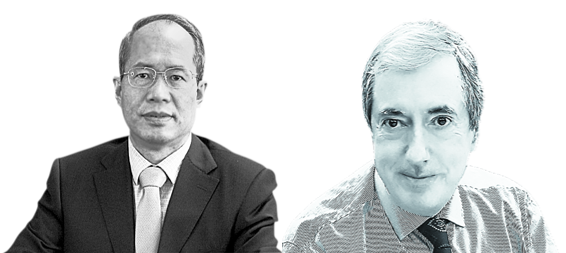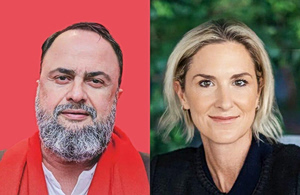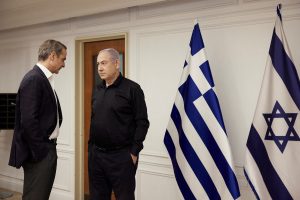Αt a time of various crises, tensions, but also οf military conflicts, how do people assess humanity’s prospects? What can Greece, the birthplace of Western culture, expect from Eastern cultures? An answer is provided by a recent resolution of the 78th General Assembly of the United Nations, adopted by consensus, which declares June 10 as the “International Day for Dialogue Among Civilizations”. Greece firmly endorsed the resolution, proposed by China. The international community unanimously advocates the respect for the diversity of world civilizations, the common values of humanity, the importance of inheritance and innovation of civilizations, and robust international people-to-people exchanges and cooperation. We witness many political and diplomatic efforts aiming at the de-escalation of ongoing military confrontations and the consolidation of peaceful coexistence. There are also long-term endeavors of politicians, academics, and intellectuals who hope to avert future wars by encouraging dialogue and fostering mutual learning among cultures. The foundation of the Center of Ancient Greek and Chinese Civilizations (KELKIP) serves as a model for dialogue between China and Greece, but also, more generally, for all people in East and West, enhancing the pursuit of the above goals.
Since 2023, KELKIP, a joint venture of the National and Kapodistrian University of Athens, Aristotle University of Thessaloniki, University of Crete and University of Patras, has been engaged in close cooperation with its Chinese counterpart, involving the collaboration of Southwest University in Chongqing, Renmin University, Shandong University and Sichuan University. We have organized academic exchanges, conferences and summer schools; we have begun translations and scientific publications of various kinds and produced documentaries with a view to contributing to the comparative study and the deeper mutual understanding of the two cultures. In fact, we are confident that the parallel examination of the formation and the evolution through the centuries of our two ancient civilizations, respectively in Europe and in Asia, can provide a solid ground for such an understanding. Dialogue between Greece and China can be based on highlighting similarities and differences between monuments and remnants of material culture, but also between the spiritual dimensions and the values of the two great traditions, which constitute part of the immaterial heritage of humanity.
In Greece, as in China, we have already undertaken systematic research focusing on analogies and commonalities which could sustain a comparative approach to Presocratic philosopers and Daoism, as well as to Laozi, Confucius and his disciples, Mozi and Zhuangzi, and to Socrates, Plato, Aristotle, the Stoics, the Sceptics, and other thinkers of the two traditions. We lay emphasis on the possibility to seek parallel lessons in their works as a foundation for a new philosophical art of living, inspired from the wisdom of the past and helping to deal with contemporary challenges menacing the world, with the rapid, unchecked growth of technology and dangerous geopolitical confrontations.
We started with philosophy, but we have also supported meetings of specialists in many areas of the Humanities, for sharing experiences from archaeological excavations in China and Greece and for promoting the comparative study of ancient history in the texts of Herodotus, Thucydides and Sima Qian, and of the history of science and technology, especially medicine, in classical Greece, in Byzantium and in China. We are also looking forward to progress in the fields of comparative literature and history of art, revealing common and similar elements in painting, sculpture, architecture, music and poetry.
We firmly believe that these activities will soon lead to concrete results of practical importance. These results are of interest not only to Greece and to China, but also to people all over the world. The cultivation of intellectual and moral virtues converging at many points and the exploration of the foundations of conceptual systems and worldviews, focusing on human beings and aiming at a balance among individuals, societies and their natural environment, shall offer to the East and the West a model of peaceful coexistence and cultural flourishing based on the mutual enrichment of our creative capacities. Logos and Dao open the way to new fruitful encounters, hence confirming the conviction that intercultural exchanges overcome barriers, that mutual learning among different civilizations overrides confrontations and pointless antagonisms, and that respect for the other is stronger than the illusion of cultural superiority.
Xiao Junzheng, Ambassador of China in Greece
Stelios Virvidakis, Professor Emeritus of Philosophy, President of the Steering Committee of KELKIP



